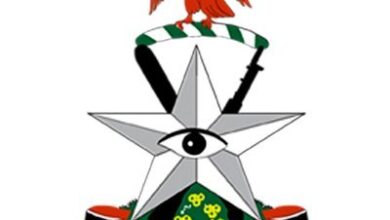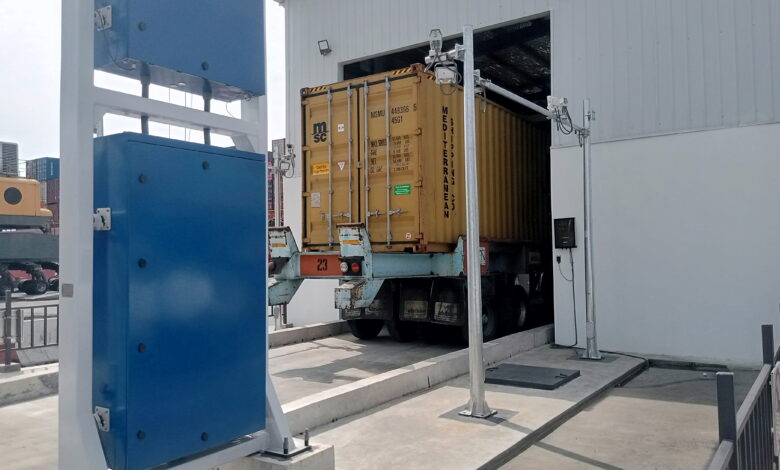
The Apapa Area Command of the Nigeria Customs Service (NCS) recorded significant progress in the Service’s drive towards a modernised, technology-driven and paperless cargo clearance system after successfully conducting a test run of its newly installed scanning machine at APM Terminals, Apapa.
The extensive trial exercise which was supervised by the Customs Area Controller, Comptroller Emmanuel Oshoba on Thursday, November 6, 2025, is the concluding phase before the scanner becomes fully operational.
Comptroller Oshoba explained that the initiative will phase out manual documentation by automatically connecting scanned images to electronic declarations in real time, streamline the clearance process, improve accuracy and strengthen security measures.
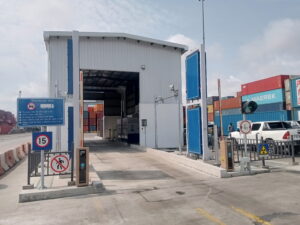
His words: “As you can see, everything is working perfectly. We are 100 per cent ready. Once a container is scanned and declared, the system automatically matches the data, analyses it, and approves release. No physical documents are needed.
“With this digital approach, detecting contraband like arms or narcotics becomes easier, as even small concealed items show clearly on the scan”.
While CAC Oshoba noted that this process will significantly cut cargo dwell time, he however, pointed out the importance of compliance on the part of stakeholders to make the system successful.
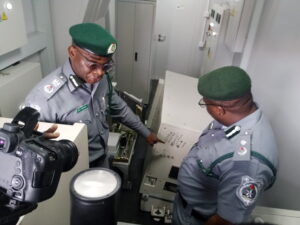
“The only time delays will occur is when discrepancies appear between declarations and scanned images. Compliance is now key because the system captures every detail. My advise to our trading community is to be compliant and make correct declarations”.
On his part, the Deputy Controller of the Scanner Unit, Umar Madugu disclosed that the scanners have the capacity to handle as many as 200 containers per hour, significantly reducing the need for physical examination and help detect prohibited items more efficiently once fully operational.
He highlighted that the simulation exercise involved a complete end-to-end assessment, from image capture and data transmission to evaluating the system’s resilience.
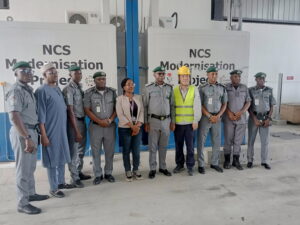
“The system’s image enhancement feature allows us to distinguish items clearly, whether it’s separating vehicle parts or counting drums, ensuring accuracy and precision in every scan to uncover any concealment or irregularity”.
Earlier, Mr. Niu Chao, Project Manager of Nuctech Company Limited, the equipment provider, gave an overview of how the system functions.
According to him, all scanned images are transmitted to a central analysis hub in Abuja, stored in a cloud database, and simultaneously displayed for local review. He explained further that the system is equipped with a backup network that guarantees continuous operation, even in the event of a network outage.
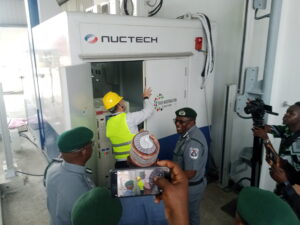
Also speaking, Mrs. Bamidele Chinedu, Stakeholders Engagement Lead for Trade Modernisation Project Limited, the company saddled with the responsibility of modernising the NCS’ operations expressed satisfaction with the project’s implementation.
“Yes! We are 100 per cent ready, as our partners here have said. everything is in order. It’s exciting to be here today to witness how ready we are to kickstart business”.
The technology is expected to improve accuracy, boost revenue, and usher in a smarter, faster, and more secure cargo clearance era in Nigeria’s maritime sector.


